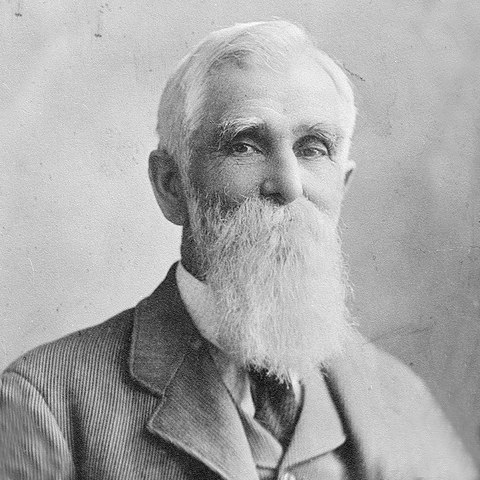Author Bibliography (in progress)
Clubb, Henry Stephen (1827-1921)
BIOGRAPHICAL NOTE

Henry Stephen Clubb was born on 21 June 1827 in Colchester, England, to a family of vegetarians and throughout his life he was active in a number of vegetarian societies and veg*n communities. In 1842 he joined the ethical vegan community of Alcott House, named for A. Bronson Alcott, in Ham Common outside London, and lived there until the community closed in 1844. His reminiscences of the Concordium were published in the London Herald of Health in 1906. Clubb was involved in the vegetarian colony at Stratford St Mary, near Colchester (1848-1851). He was local secretary to the Vegetarian Society of Salford (Manchester) and became the editor of the Vegetarian Messenger, the journal of the Vegetarian Society. Eventually he converted to the veg*n sect of Swedenborgians, called the Bible Christian Church in 1850, before immigrating to the United States in 1853, where he joined the American Vegetarian Society. In 1855 he created the Vegetarian Settlement Company, part of the project of Kansas settlements, and founded Octagon City, a utopian veg*an community based on Orson Fowler's architectural theory, where meat, slavery, and alcohol were all banned. Henry Clubb was a minister of the Bible Christian church in Philadelphia, President of the American Vegetarian Society, and Editor of its journal, Food, Home and Garden (Vols I-III, 1897-1899).
PUBLICATIONS
“Economy in Food.” Food, Home and Garden Vol. III no. 34 (107) (November 1899): 149-150.
“The First Vegetarian Supper under the Christian Dispensation.” Food, Home and Garden Vol. I no. 5 (77) (March 1897): 76.
“God’s Covenant with Beasts. Notes of a Discourse delivered June 20th, 1897, at Christ Church, Park Ave., Philadelphia.” Food, Home and Garden Vol. I no. 9 (81) (July 1897): 135-136.
“Is the Edenic Life Practical? A Discourse delivered at the Bible Christian Church, Park avenue, Philadelphia, on November 5, 1899.” Food, Home and Garden Vol. III no. 35 (108) (December 1899): 165-167.
“Maintenance Committee.” History of the Philadelphia Bible-Christian Church for the First Century of its Existence, from 1817 to 1917. Philadelphia, J. B. Lippincott, 1922.
“Octagon and Vegetarian Society.” The Kansas Herald of Freedom Vol. II no. 13 (3 May 1856): 3 (col. 2-3). Chronicling America: Historic American Newspapers. Library of Congress.
“Summary of the Vegetarian System.” Food, Home and Garden Vol. I no. 9 (81) (July 1897): 132-133.
Thirty-Nine Reasons Why I am a Vegetarian. Philadelphia: The Vegetarian Society of America, 1903.
“The Vegetarian Principle. To the Editor of the Manchester Temperance Reporter.” The Vegetarian Advocate Vol. 2 no. 7 (March 1850): 78-79.
Clubb, Henry S., & F. E. Green. “Benjamin Franklin. An Address Delivered at the December Meeting, 1896, of the West Side Branch of the Chicago Vegetarian Society, by Rev. Henry S. Clubb, F. E. Green, Presiding.” Food, Home and Garden Vol. I no. 5 (77) (March 1897): 72-73.
Last updated on August 29th, 2024
SNSF project 100015_204481
@VLS@veganism.social | VeganLiteraryStudies | @veganliterarystudies | @vegan_lit_studies
